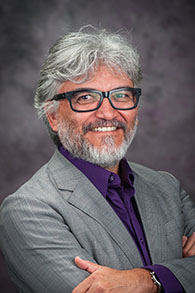K-State geographer publishes study on the value of private properties for biodiversity conservation
MANHATTAN — A Kansas State University geographer is part of an international team that is showing the vital role private properties play in protecting native species in Brazil.
Marcellus Caldas, professor of geography and geospatial sciences in the College of Arts and Sciences and assistant provost for international collaboration and education programs, and colleagues in Brazil and Spain recently published "The value of private properties for the conservation of biodiversity in the Brazilian Cerrado," in the journal, Science.
Global biodiversity is declining rapidly, with severe consequences for humanity. Publicly protected lands are important to conservation efforts but may be insufficient for preserving habitats and threatened species.
According to the researchers, because publicly protected land is not a high priority nor plentiful worldwide, a key strategy for enhancing biodiversity may be to set aside areas of private land for conservation. Brazil has been practicing this strategy, and Caldas's team's study evaluates its effects on biodiversity conservation.
Caldas and his co-investigators assessed whether privately protected lands contribute to biodiversity in the Brazilian Cerrado. The Cerrado is a global high-priority area for biodiversity conservation and a major food producer. Its land use is often at odds with conservation goals.
The researchers determined that up to 14.5 percent of threatened vertebrate species ranges are accommodated by the privately protected areas, proving a positive impact on conservation.
"Preserving these biodiversity-friendly habitat patches in human-dominated areas improves the persistence of native species," said Caldas. "And as the areas increase in number, so does the connectedness of the natural habitats and thus the total habitat available for biodiversity."
Unfortunately, much of the private land is currently degraded. According to Caldas, policy and funding are needed to ensure restoration and gain more benefits from conservation efforts.
"To help guide policy, we evaluated the conservation value of many of the landscapes and devised a restoration prioritization scheme," said Caldas.
In addition to preserving biodiversity, privately protected areas may also contribute to improved pollination of major crops like soybeans, fruits and vegetables, a benefit not always recognized by private landowners.
The study's principal investigator was Paulo De Marco, Jr. at Universidade Federal de Goiás in Brazil. Other authors were Rodrigo A. De Souza, André F. A. Andrade, Caroline Corrêa Nóbrega and Luiza Motta Campello, in Brazil, and Sara Villén-Pérez in Spain.
The research was supported by Comunidad de Madrid, Universidad de Alcalá, the National Science Foundation NSF-BCS Program, and Conselho Nacional de Desenvolvimento Científico e Tecnológico.

